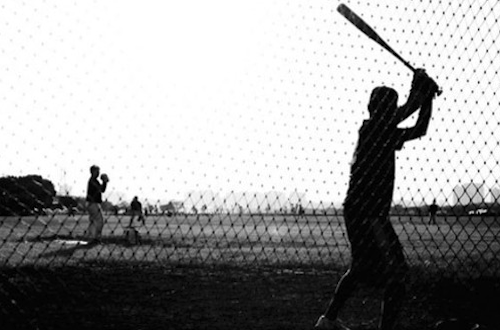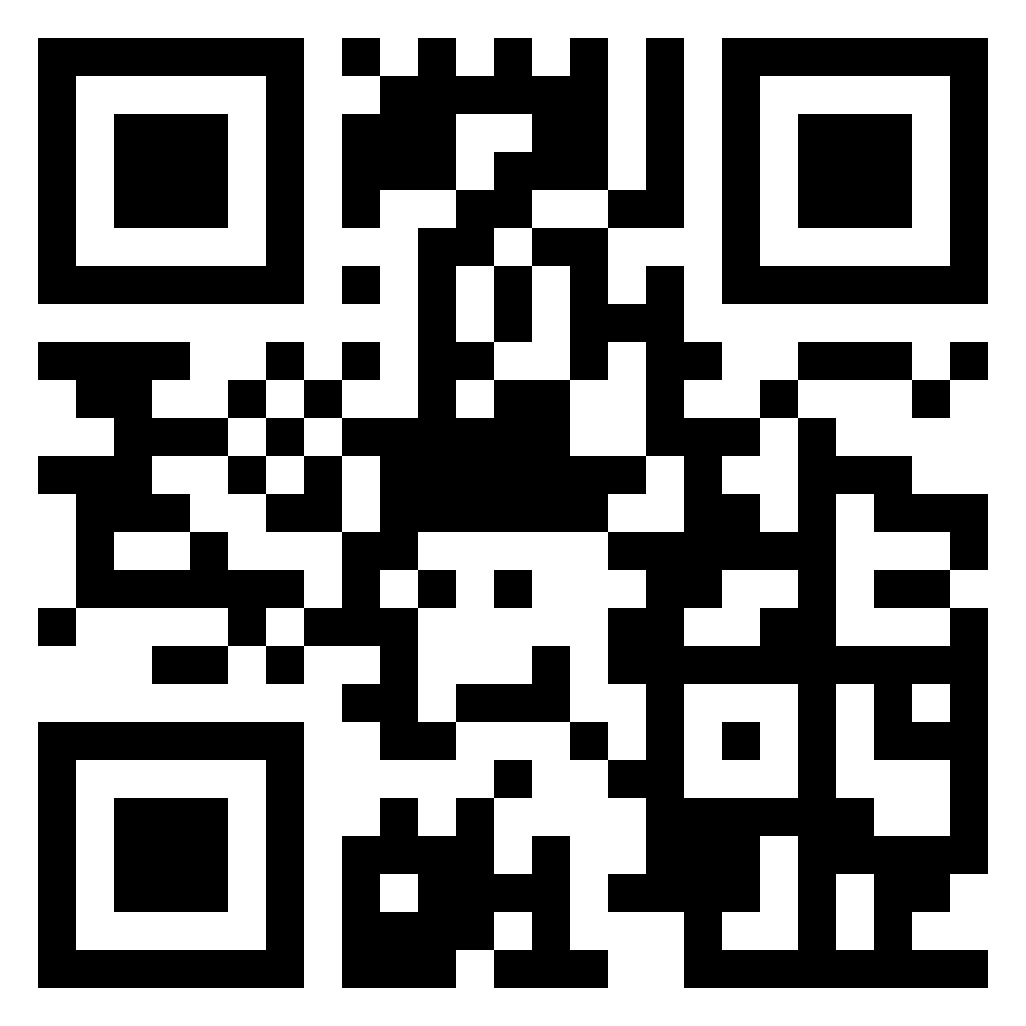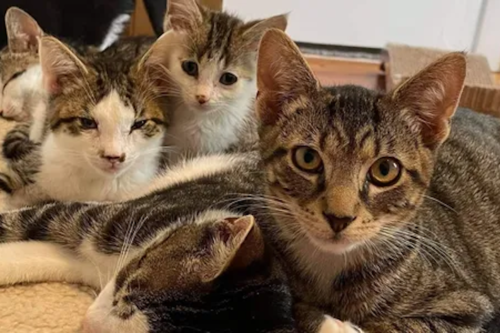Similar to how I challenged myself before—see if I could just sit down and write a story starting with nothing but a blank page (result: For Future Reference)—one night long ago while lying in bed, I gave myself this writing challenge: Could I conjure a random opening scene tonight, then turn it into a story tomorrow?
After thinking for a bit, I thought: How about a kid hitting a home run?
Sounded good.
So next morning, I gave myself just one hour to make something of it before I had to go to work. The result: Darren’s Homer—which I eventually expanded and renamed Tommy’s Homer and made it a scene in the novella The Crossing (now available on Amazon in both paperback and on Kindle, which is also one of the 3 novellas included in the collection Rolling The Bones, also available on Amazon in hardcover, paperback, and on Kindle).
Anyway, I thought I’d share the story here, as I have with some of my other fiction.
Enjoy!
Tommy’s Homer
by Rand Eastwood
When Tommy smacked that baseball clear out of the field—to all his friend’s astonishment, and even his own—it wasn’t an easy pitch, or blind luck, or even divine intervention.
No, Tommy had practiced.
The spring after Tommy’s fifth-grade year, when he was eleven, he decided he was going to learn to hit, come hell or high water. He was tired of striking out and being made fun of every time he played with the neighborhood kids in a pickup game.
So, the very first Saturday after school let out, he went to work. Got up early, got dressed, and, with ball and bat in hand, took off out the back door of their farmhouse and headed for the back forty. He tromped through the uncut grass and knee-high weeds all the way out to the old dilapidated barn that leaned precariously to one side just inside the rear fence line, where his dad kept all sorts of old farm equipment and other crap he never used anymore but was afraid to get rid of.
He was going to put that old barn to good use for once: as of today, he had re-commissioned it as the rebound backboard for batting practice.
Standing some twenty feet from the barn, he tossed the ball, swung, and missed. Tossed the ball, swung, and missed.
When his older brother Will found out what he was doing, he thought he was nuts.
“That’s never gonna work,” he chided. “In real baseball, the ball is pitched. You’ll never learn to hit it right by tossing it to yourself, dipshit.”
Of course, Will would never in a million years volunteer to pitch to him, and Tommy knew better than to ask. There’s no way he’d do it—especially if there was any chance any of his friends might see them playing together.
And besides, even if he did agree to do it, he’d probably just end up throwing the ball at him, instead of pitching it to him, and he was a pretty good shot, and could throw really hard, and Tommy wasn’t about to take that chance. He knew better.
Will was a mean kid, a bully—just like their dad.
And of course he wasn’t about to ask his dad, either. Especially in the middle of a binge. His binges came and went, but in the middle, when they peaked, the reeking half-dressed man carried the bottle around with him everywhere he staggered, alternating between fits of rage and bouts of sleep that bordered on unconsciousness. He didn’t go anywhere—not even to the bathroom—without that seemingly unemptyable bottle clutched in one hand, the brown liquid sloshing.
And about the time Tommy had decided to start practicing out at the barn, was right about the time his old man was carrying that damn bottle around. Not a good time to ask—or say—anything. Tommy knew from experience that just as his father’s clenched fist could bring that bottle to his lips, his other fist could just as quickly and easily be brought to Tommy’s. And worse, he’d be grounded in the house at least a week, to reduce the risk of any one seeing his cuts and bruises before they healed, then asking questions or making phone calls or otherwise butting into old man Baker’s private affairs.
And Tommy wasn’t sure which was worse—the beatings, or the groundings—and he had no desire to run any experiments to find out.
So he figured he would just have to learn to hit on his own.
Toss, swing, miss. Toss, swing, miss…
After a few dozen tosses, he started occasionally making contact, tipping one behind him or ricocheting it straight into the ground; after a few hundred, he actually started catching some good, solid hits; after a few thousand, he was regularly hitting the ball, the crack! of the bat and the thwack! of the ball striking the wooden slats on the side of the old barn and echoing off into the woods behind the property.
After a while it was getting pretty easy, so he decided to up the challenge a bit: he began throwing the ball up on the top of the barn and waiting as it bounced haphazardly around on the slanted roof, then dropped down in a totally random place, at a totally random speed.
He learned to quickly gauge the ball as it fell from the edge; and though he only had a second or two to do so, over time he got pretty good at it, successfully hitting the ball more often than not.
And that’s what he did. Day after day, toss after toss, swing after swing—for two solid weeks.
Will may have been right—that’s not the way to learn to hit a pitched ball; but what Tommy did learn instead, without really even being aware of it, was even more important: to keep his eye on the ball.
Then one Saturday, over at Winnie’s house, while the two were lounging around out on the front porch reading and comparing comic books, a gaggle of neighborhood kids came riding by on their bikes, heading for the corner field down on the south end of The Flats for a pickup game. On their way past, Eric Brunes waved the two in, and they readily abandoned their superheroes (the comic books were all old ones anyway), ran inside for their mitts, then jumped on their bikes and peddled ferociously down the street to join up with the gang.
They all parked their bikes on the edge of the street and flooded onto the field. It was a vacant lot, overgrown with wild grass, which the kids had converted into a makeshift ball diamond a few summers ago, using scrap pieces of plywood for bases, which they stashed in the tree line behind the field for safe keeping between games.
After retrieving the wooden bases from hiding and placing them around the diamond, the kids divvied up teams, flipped a coin—and Tommy’s team got first bat.
Eric was pitching for the other team (he was a year older, half a foot taller, and a lot stronger (and meaner) than the rest of them, so he always pitched, nobody argued this).
Danny Leer was first up, a decent player, could hit okay, and after one strike he caught one, good connection—but it was a line drive straight into the mitt of Chris McDaniels at short stop.
Winnie was up next. A skinny kid with thick glasses and a pale, freckled complexion, with fine, dark hair that was cut into straight bangs across his forehead—almost a bowl cut, with his small jug-ears sticking out on each side—he was not, by any stretch of the imagination, an athlete. So he looked somewhat comical, standing there intently holding a bat up in the air that was thicker than his own arms.
As usual, Eric easily struck him out, burning three fast balls in a row right by him. Winnie whiffed them all, swinging at the last one so hard his glasses tumbled off and landed right in the middle of home plate, prompting laughing and heckling from both teams as he timidly retrieved them and slumped away.
Then it was Tommy’s turn to bat. He stood poised at the plate, bat held high, exactly as he had practiced thousands of times over past two weeks, ready for the ball to come tumbling down crazy and unpredictable from the barn roof.
Knowing that Tommy couldn’t hit—he usually whiffed it, just like Winnie—Eric made the mistake of thinking this would be an easy out. So for show, and probably more just to make Tommy look foolish, Eric performed a wide variety of crazy, gesticulated antics during his windup—prompting laughter from the kids on both teams—then, stepping forward, he at first feigned another fast ball—but at the last second held up and instead tossed a high, slow floater toward home plate.
The ball sailed in high above Tommy’s head, then suddenly dropped in front of him just as it reached the plate (pretty much just as it did during his practice sessions).
Keeping his eye on the ball, gauging its speed and distance as it dropped, Tommy swung with everything he had.
CRACK!
The solid impact of bat against ball was so loud and unexpected—like a firecracker suddenly going off—that many of his teammates behind him actually flinched.
But Tommy just stood in disbelief as he watched the ball sail well over everyone’s head and into the bright summer sky. Spencer Lewis—who was the youngest and smallest kid in the group, so was always stationed out at center field because no body could usually hit the ball that far anyway—turned and ran across the outfield as the ball sailed over him and toward the trees in the back.
Running as fast as he could, but to no avail, at the last second he threw his mitt into the air in futility as the ball fell and disappeared into the trees, thumping and cracking on its way to the ground somewhere unseen.
Incredulous, Tommy proudly trotted the bases, his teammates shouting and cheering. As he crossed home, they all crowded around him, whooping, laughing, and patting him on the back, congratulating him on the most awesome homer they’d ever seen.
In the middle of all the ruckus, Tommy heard Eric shout from behind him, “Hey asshole!”
Tommy turned to find Eric staring down at him, pointing his finger in his face.
“Nobody ever homers on me!” He barked. “EVER!”
With that, he turned as if to walk away—but then stopped, leaned slightly onto one leg…and launched a roundhouse.
And Tommy never saw it coming; suddenly, he both felt and heard the stinging explosion of Eric’s fist as it met his face.
Spinning violently, he landed face-down in the dirt
suddenly, he both felt and heard the stinging explosion of the back of his father’s hand as it met his face. Spinning violently, he landed face-down on the hardwood floor.
Arms and legs outstretched, he slid across the smooth floor toward the small bookcase that sat under his bedroom window, his wood desk chair tumbling away behind him and sliding to a stop against the bed.
Rolling painfully over, he saw his dad standing over him, pointing his finger at his face.
“Don’t you ever talk back to me!” he barked. “EVER!”
With that he took a swig from the ever-present bottle.
Tommy blinked up at him, wiping the blood from his swelling lips and right nostril. He hadn’t talked back, really—he’d merely made an observation. But either way, he should have known better than to say anything at all when his old man was on a binge. During those times, It didn’t matter much what he did, what he said—his dad was just as likely to start talking hand to him anyway, soon as something set him off. And just about any little thing could set him off.
This time, he’d been sitting quietly at his desk in his bedroom, minding his own business, engrossed in the novel The Call of the Wild, his fifth-grade reading assignment, when his dad had suddenly appeared in the doorway.
Tommy ignored him, kept his nose in the book.
After looking around the room, he slurred:
“Make sure you clean up this dump fore you go to bed.”
Tommy just kept on reading, afraid to speak. Staying under the radar.
Taking a swig, his father finally turned and disappeared down the hallway, prompting a sigh of relief from Tommy.
But a moment later, he was back. This time, he stepped fully into the room, now only a few feet from the boy’s desk, looming over him, looking down at him with contempt.
“You ignorin me?”
A swig.
“No Sir,” Tommy said, not looking up from the book.
“Sure looks like you’re ignorin me.”
“No, you’re just drunk,” he mumbled under his breath.
A surge of adrenaline coursed through him when he realized what he’d just said. He couldn’t believe it. Sometimes he suspected he had a trap door located between his brain and his mouth, the way stuff just tumbled out like that sometimes…
Staring down at the book, he hoped the remark would slip by unnoticed. Or with any luck, maybe his dad hadn’t even heard it.
Two quick steps toward him, just enough time for Tommy to turn and look up, a quick backhand, and now he was writhing on the floor, bleeding.
Again.
Funny, though—all he could think about was how he hoped he hadn’t gotten any blood on the book, since it was from the school library and he probably couldn’t return it if he had
as the ruckus of shouting and cheering kids immediately stopped, replaced instead by a morbid silence that quickly spread across the ball field.
Reeling in pain, both hands clenched to his face, Tommy turned over to see Eric standing over him, face flush with anger.
Then, turning, the bully again made as if to leave—walking nonchalantly past Tommy as he lay writhing in the dirt—but suddenly turned and kicked him, hard, in the ribs.
Tommy curled up in a ball, the wind knocked out of him.
Eric turned and stormed off, all the kids stepping out of his way as he barreled through the crowd. Hands shoved into his pockets, mitt clasped under one arm, and not once bothering to look back at the rest of them, he marched to his bike, mounted, and peddled away down the road.
Gasping for air, Tommy watched him go though the drifting clouds of dust, and couldn’t help but wonder if maybe Eric’s dad sometimes carried a bottle around, too.
Once he’d disappeared around the corner, the rest of the kids gathered around and helped Tommy off the ground, murmuring their condolences and spewing profanities about Eric.
Tommy brushed himself off, wiped at his bloody nose with his shirttail. The bleeding was already stopping, and the pain in his ribs was already subsiding, and when he finally began regaining his breath, he knew he’d be okay.
After stashing the plywood bases back in the tree line, the kids all rode to Spencer’s house, because his mom sometimes made homemade ice cream—and sure enough, there was plenty for them to indulge.
It wasn’t long before Eric Brunes and his temper tantrum was forgotten—but the legend of Tommy’s awesome homer would live on forever.
Tommy may have spent a few weeks that spring learning how to hit a baseball—but in those few short minutes after scoring that homer, he learned quite a bit about life.
Subscribe to INSIGHTS Blog on Substack • Like/Follow INSIGHTS Blog on Facebook
Visit Lifeology Store • Like/Follow Lifeology Store on Facebook • View Rand’s Books on Amazon
A Note To Readers:
If you found this article (or any of the others, for that matter) interesting, informative, entertaining, etc., please consider subscribing to the INSIGHTS email newsletter: simply enter your email into the form below (also in the right sidebar)—or, if you prefer, just use this simple quick sign-up form. (Bonus: INSIGHTS subscribers receive a 20% discount at Lifeology Store, at checkout simply enter the discount code included in the welcome email upon subscribing!)
↓↓↓ Also, please hit the “Like” (thumbs up) button below. Thanks! ~ Rand





















